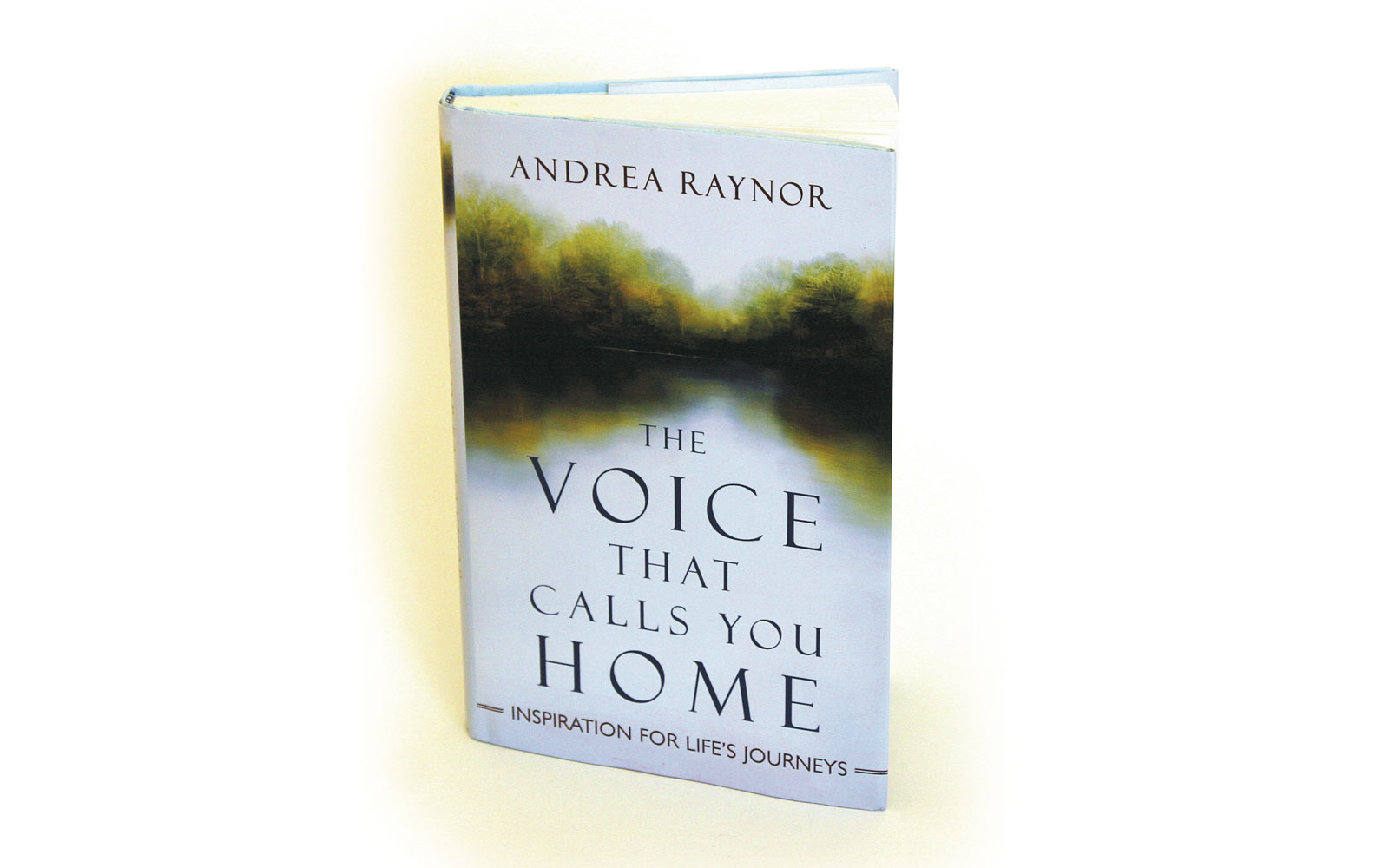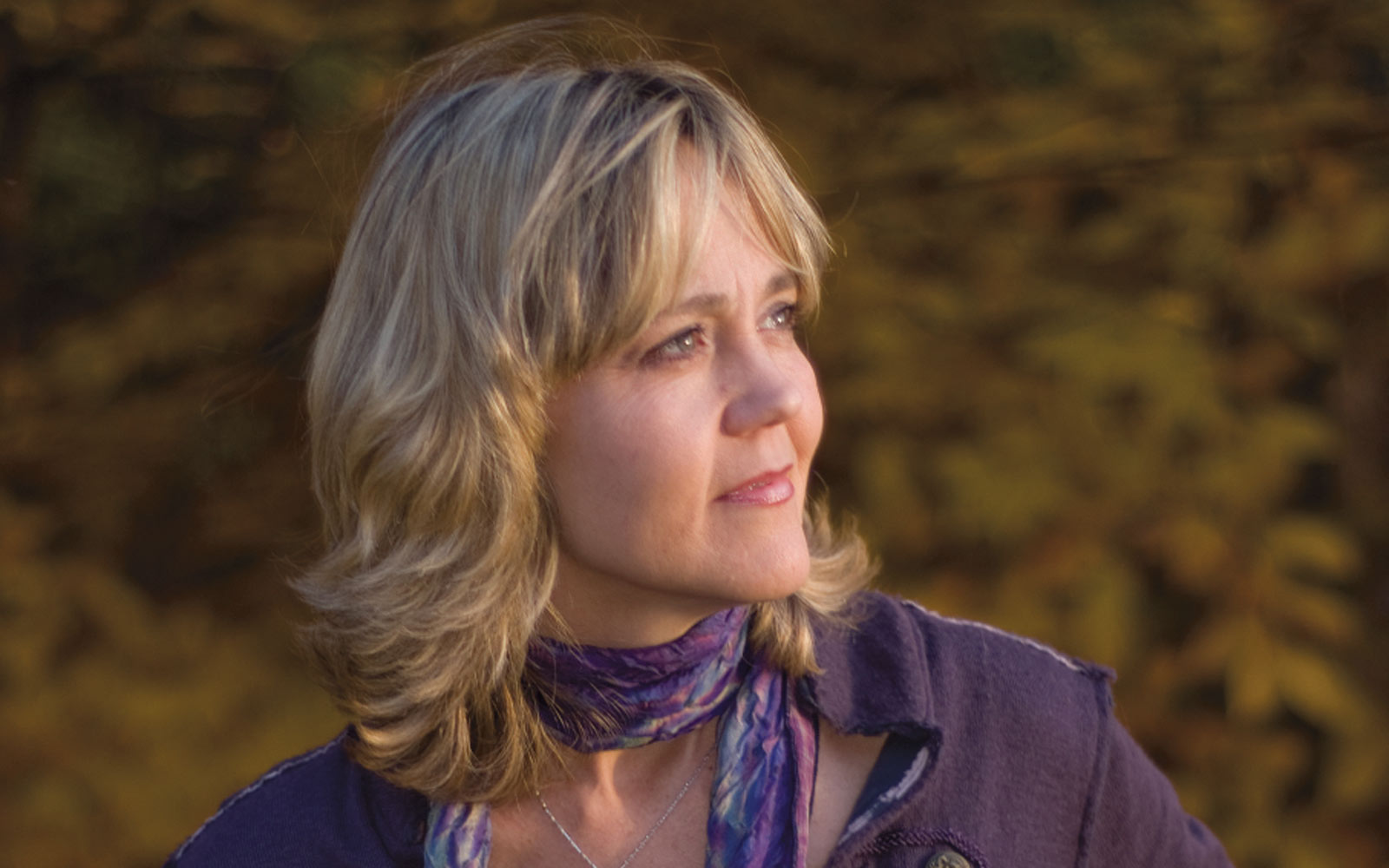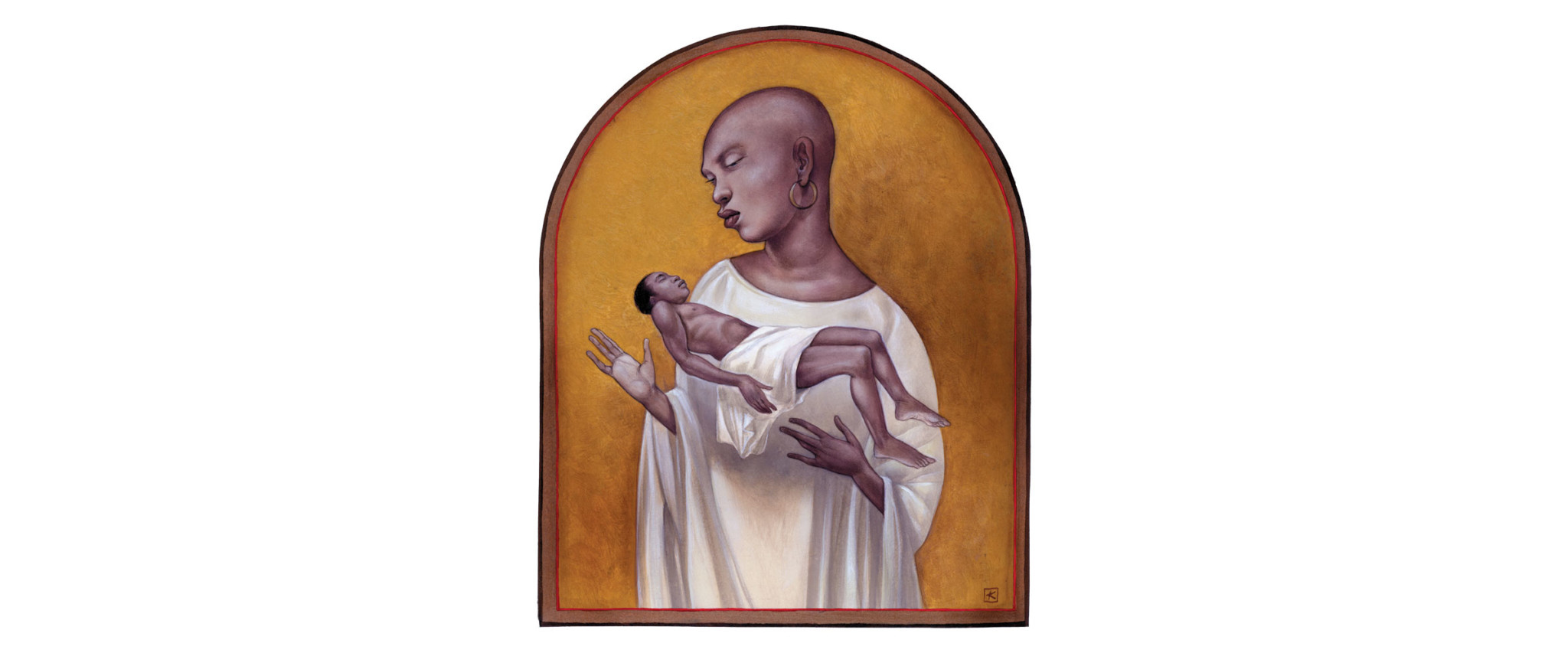As I stepped out of the elevator on the fifth floor of Lawrence Hospital, the halls seemed strangely quiet. it was 8 pm–long past the time that I would normally be seeing patients for hospice. Then again, this was an unusual case.
I had received a call from one of our nurses informing me of a young, male patient at the hospital. He was 28 years old and was actively dying from a rare type of lung cancer. If he lived through the night, the plan was to try to bring him home to die. The chances of this happening did not look good. Although there was little that could be done for him medically, besides keeping him comfortable, the nurse thought that his family might benefit from some spiritual support.
I wasn’t sure what I would find when I arrived. I had been told that the man had a wife and a three-year-old daughter in addition to his mother, who rarely left his side. I walked down the corridor to the nurses’ station, mindful of the hushed atmosphere. For some reason, it felt more like a convent than a hospital. The quiet lent an air of gravity; it seemed to press itself upon my chest. I steadied myself, trying not to worry about what I might say, who I might find, in the room of the young man and the mother I was about to meet. What could one ever say to a mother who was losing her child? Just be present, I reminded myself. Be present.
With a nod, the nurse on duty indicated the direction of the patient’s room. Without saying a word, her eyes told me that this man was dying, and dying soon. No, more than that–they conveyed wave upon wave of sadness. They searched my face for a moment as if to say, “Can’t you do something? Can’t you extract something from that deaf-mute God of yours?” It was clear that this was going to be a difficult night–for the patient and his family first and foremost, and for the staff, who would be standing by like those unable to stop a tidal wave.
“His mother is with him,” the nurse said softly. “His wife went home a couple hours ago. She couldn’t bear it. Plus, she has their daughter to worry about. But his mom … his mom is amazing.”
When I entered the room, it was like stepping into a small sanctuary–not that it looked like one by any stretch of the imagination, but it felt like one. The lights were dimmed, and from a radio came the soft sound of an organ playing hymns and spirituals. The woman at the patient’s bedside had the presence of a holy woman, a guardian angel, a shaman–Mary, Shiva, Eve. In a flash, she was every mother whose heart is breaking and she was this particular woman losing this particular son. Her presence was so powerful, it seemed she could rip the universe in two with her bare hands if it meant giving her child life.
Our eyes met. She, an African-American woman with an intense, steady gaze and a forgiving face, and I, a young, white mother and minister. She was welcoming and yet protective; and it was clear that she was prepared to do whatever it might take to guard her son, ensuring that his last hours would be filled with peace and love. I was immediately aware of the reality that I would have little to offer this woman beyond my deep respect and reverence. Truth leads to humility, and humility to wisdom. I didn’t know much, but I was wise enough to recognize that my presence was not a gift to her–it was a privilege granted to me by this woman.
“I only want him to hear pleasant things now,” she said softly but with authority.
I nodded. Moving closer to the bed, I had the urge to take off my shoes, for I felt that I was standing on holy ground. We stood facing each other on either side of the bed. I was grateful for the cool, metal bed rails, which gave me something to hold on to, something with which to steady myself. Then I took him in. He was quite possibly one of the most beautiful men I have ever seen. Though diminished by illness, his features were stunning–the smooth forehead and strong, dark brows, the graceful curve of his cheekbones, the strength of his sculpted nose. His mouth was open, revealing the perfect arc of straight, white teeth beneath full lips. I exhaled–devastated, awed.
“He is a beautiful man, your son.”
“Yes, he is,” the woman answered. “Yes, he is. More than you could ever know. He is a wonderful father and husband, and he is my son.”
There is nothing I can do to protect my son. There is no prayer I can pray, no promise I can make, no deal I can strike with God or the devil to ensure his safe passage through this life.
I tore my eyes away from his face and caught a glimpse of some pictures on the windowsill beyond his mother’s shoulder. There, smiling back at me, was his daughter, with the flashing eyes of a toddler and her father’s bone structure; there was his wife, smiling, too, still blissfully unaware of the random way in which illness chooses its victims.
“How’s your daughter-in-law?” I ask.
“Not good. I sent her home. She’s got the baby to take care of now. But I am his mother. He had a good life–it wasn’t a long life, but it was a good one. I brought him into the world, and I will rock him home.”
We stood in silence at his bed. His breath came in labored, uneven wheezes; the air smelled like death. I was aware of the gurgle in his chest, the “death rattle,” as it is commonly known. His head was turned toward his mother, and his eyes were slightly open. She had his hand in hers, but in spirit she had his whole body, cradling it like a child’s. The Pieta? incarnate. I offered to read a few psalms, I offered a prayer–but mostly I offered another mother’s broken heart. Then I left the hospital, knowing that I would never see either of them again.
I got in my car and drove a block or two before pulling into a parking spot in front of a natural foods store that I frequented. I’m not sure why I did that other than being vaguely aware of the need to collect myself before I went home. As I went inside to buy a bottle of water, I saw Robyn, the owner of the store, who was starting to close up for the night. She was about ten years older than I, a naturally beautiful woman with long dark hair, smooth olive skin, and two teenage children of her own. She took one look at me and asked if I was okay. I started to tell her about my visit to the hospital … and then I began to weep. The tears would not stop as I tried to describe to her the beauty of the man and his mother, and the sacred space she had created out of a sterile hospital room. Robyn put her arms around me, and we stood like that for a moment in the empty store. Then she took my hand and led me to another aisle, saying, “Here. Come here. Take this–it’ll help.” I looked at the small brown bottle that she pressed into my palm. Homeopathic Rescue Remedy.
“It won’t fix anything, but it helps. Take the water, too. And don’t even think of handing me that money. Do you need anything else?”
“No, Robyn. But thanks, thanks so much.”
When I walked into my house, it was quiet–not the quiet of the hospital, with its weighty and ominous silence, but the quiet of children sleeping, the quiet of every night we take for granted, the quiet that embraces us like an old friend, descending without so much as a whisper of thanks.
I took off my shoes and walked up the stairs to my children’s bedrooms. For the longest time, I stood at my son’s bed. As I rested my hands on the warm, curved wood of his little crib, I couldn’t help but think about the stainless steel rails of the young man’s hospital bed. I could picture that mother gazing upon her son as I was gazing upon mine. My son’s breath came softly and steadily; it smelled like sweetgrass and milk. His fingers instinctively curled around mine as I stroked his palm.
There is nothing I can do to protect my son, I thought. There is no prayer I can pray, no promise I can make, no deal I can strike with God or the devil to ensure his safe passage through this life.
Then I felt myself falling through space, tumbling through my childhood conceptions about God, about protection, about the unspoken agreement I’d always felt I had with the Big Guy. If you tried to be good, tried to pray and to be faithful, wasn’t God supposed to shield you? Wasn’t God supposed to hold up his end of the bargain and secretly cut you a break? Intellectually, I knew this was primitive and childish thinking, but emotionally, I was grasping for straws. If that mother, that powerful, faithful, godly mother at the hospital could not protect her son, I thought, then I am doomed. What would I give to protect my children? Only everything. Only everything. But now, the only thing I could give was my terrified acknowledgment that I was powerless, that God was powerless, and that prayer seemed a ridiculous exercise in wishful thinking.

Standing there, I remembered an article I had read in the New York Post. The cover had caught my eye with one of its famous screaming headlines. It read: Kiss Your Asteroid Good-bye! Intrigued, I bought a paper and browsed the articles on what was thought to be an asteroid heading straight for Earth. Dear old planet Earth, floating there like a sitting duck in a puddle of space, unable to get out of its own way, much less the way of a rogue asteroid. Scientists warned that it was heading our way, and if it hit us, well, that would be it for the planet.
Along with the scientific data, there was a small, humorous blurb about a Florida insurance company that was selling "anti-asteroid coverage." For a one-time charge of $19.95, a person could buy lifetime cover- age against damage from an asteroid. This coverage included damage to one's liver from excessive drinking as a result of worrying about asteroids, hair loss (for the same reason), and the chiropractic care needed from craning one's neck. The only problem was, if an asteroid really hit, who was going to collect from whom?
It was a silly article; but as I stood before my son's crib, the irrational lengths to which we are prepared to go to buy safety for ourselves and our loved ones seemed understandable. I would buy it. I bought the idea as a child that God would keep me safe, safe in the dark, safe as I babysat; that God would intervene if a stranger reached out to grab me. I believed that God safeguarded the good and those who talked to him as often as possible, as if to remind him, "Hey, I'm here."
All I could do was stand there in the darkness of my son's little room and let the tears fall. I sent my love through the night air, through the particles that make up atmosphere and oxygen, solid space and bodies with their living cells. I sent my broken heart to the mother standing before her son's bed just two miles from me. I held her hand, with her son's hand, as I held my own son's.
Don't let them go, I thought/prayed. They were standing in the path of the comet, but they were without fear. Maybe that's all we can do. Pray for the strength to bear what comes in life. Pray, even if we stop believing that there is Someone who hears. Pray so that we do not die inside. Pray because it keeps the heart beating, it synchronizes us with nature, with the ebb and flow of the tide, with the moon and the stars, and with all the rest of creation, which (like us) has no control over what is set in motion by random events and by what we will never understand. If this woman could believe in God, even as she watched her son die, that was enough for me. Who was I to dishonor her with my doubt? Somewhere, light-years away, an asteroid would drift out of Earth's range. Maybe it was headed for another planet, maybe it would collide with a star, maybe it would lose momentum and become but another grain of sand in that ocean of universe. In the meantime, the earth would continue to spin, and her people would continue to bear and lose their young, to do the best they can, and to whisper a prayer every now and then, to anyone who might hear: "Hold us, Lord, and don't let go."
From the book The Voice That Calls You Home published by Atria Books, a division of Simon & Schuster, Inc., N.Y. Copyright © 2009. Reprinted here with permission.

About the Author
What began as a way to process her time working as a chaplain at Ground Zero unexpectedly turned into a larg- er project for the reverend Andrea Raynor. After putting on paper the stories of “the tenacity of the human spirit, the stubborn endurance of love, and the fragility of life” that she witnessed during her months of service after September 11, Raynor continued to write about experiences from childhood and working as a hospice chaplain. the resulting collection of essays, The Voice That Calls You Home, was published in 2009.
After graduating from Denison, Raynor had no intention of going into the ministry. She started out as a biology and pre-med major but eventually earned a B.A. in Religion and entered the Harvard Divinity School with a goal of working with the homeless or a nonprofit association–”something socially relevant,” she says. However, Raynor was ordained a year after graduating from Harvard and quickly became involved with hospice care, which brought together her interests in medicine and religion.
One of the most profound experiences in Raynor’s hospice career is described in “Holy Ground,” the first essay featured in The Voice That Calls You Home, in which Raynor recounts a quietly tragic visit to a hospital. “I think I wanted to say, right from the beginning, that I don’t claim to have all the answers to why hardship comes, but I have seen courage and I have seen faith in the face of unbearable sorrow.”
She already had a gift for being with people in grief and pain, but such suffering became personal when Raynor was diagnosed with breast cancer in April 2007, halfway through writing the book. Four surgeries and a round of chemotherapy produced several intimate chapters describing her diagnosis and treatment.
Cancer-free since August 2008, Raynor speaks to groups frequently, does per diem hospice care, and is professionally attached to a church near her home in Rye, N.Y. She is working on her second book, which will be, “a bit lighter, but still about the spiritual in the everyday.” In it, Raynor aims once again to create a resonating collection of stories. “After all,” she says, “people always remember a good story.”
-Olivia Combe

